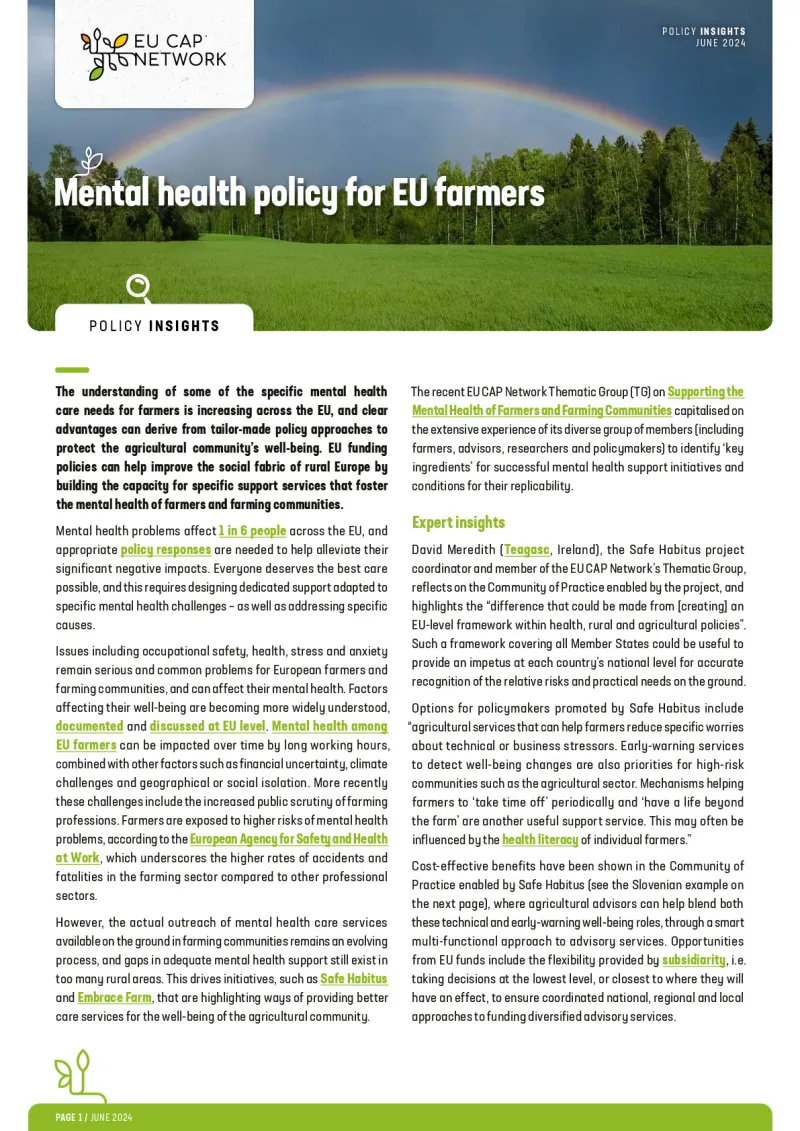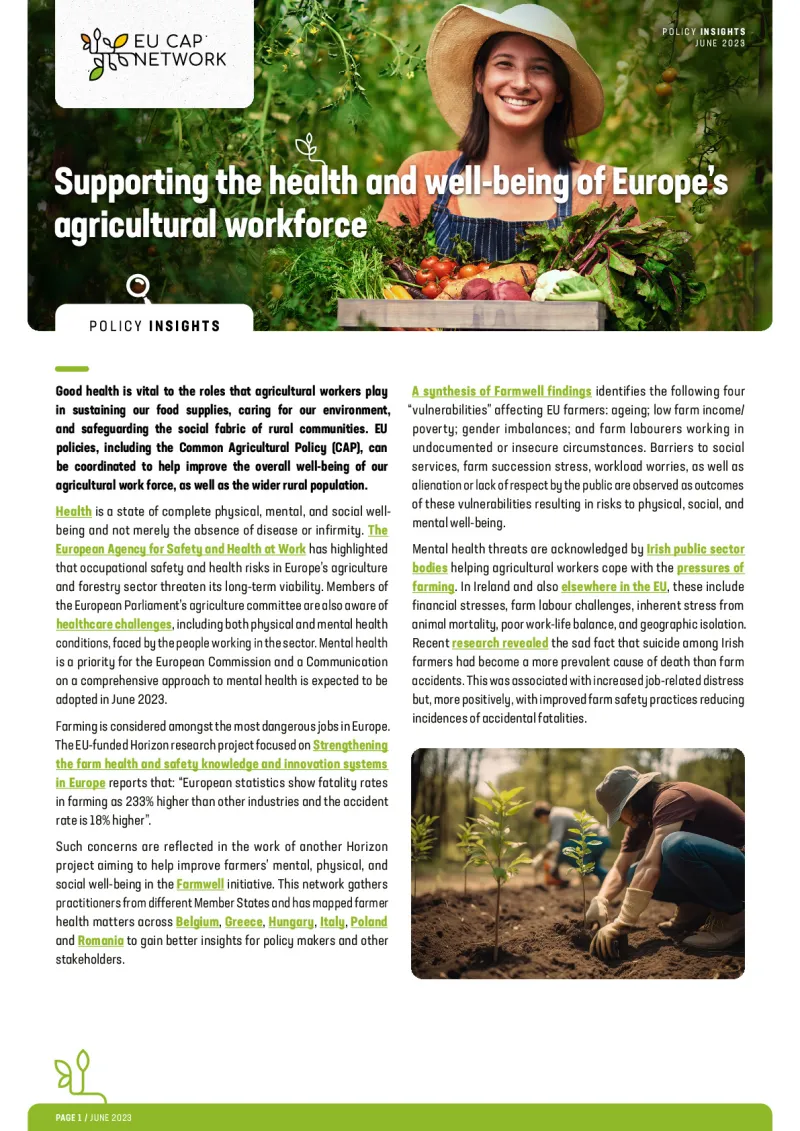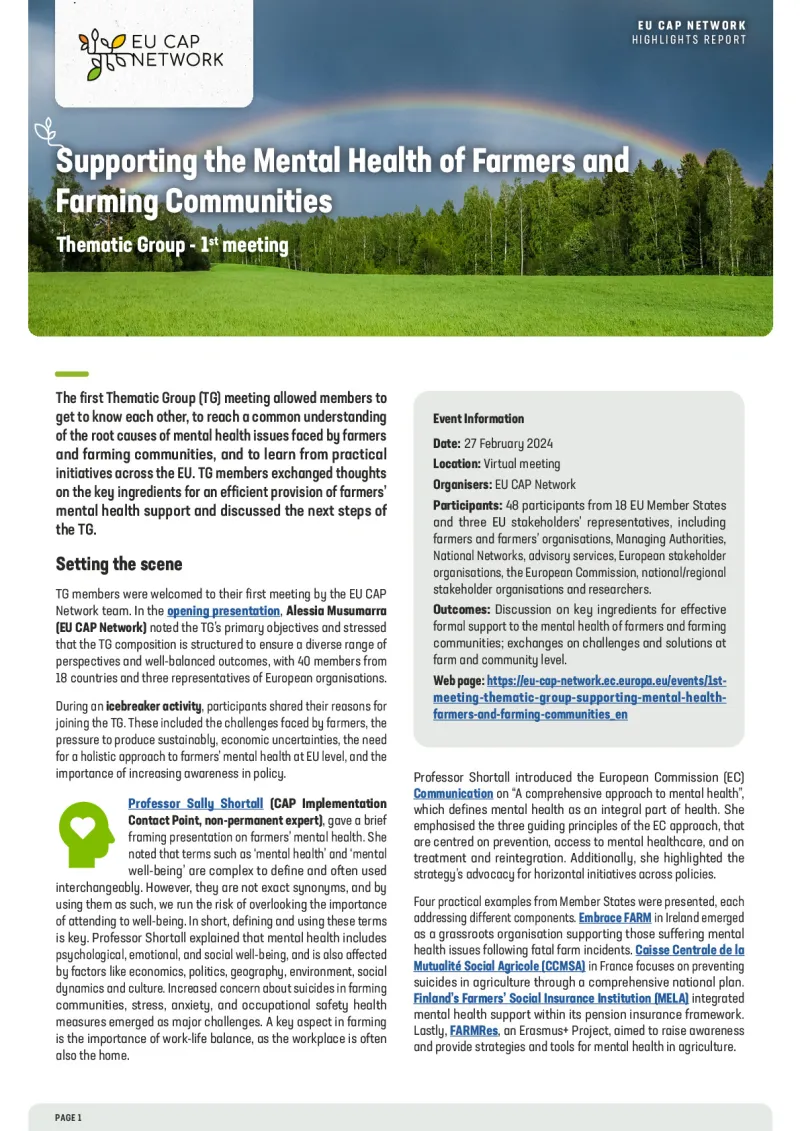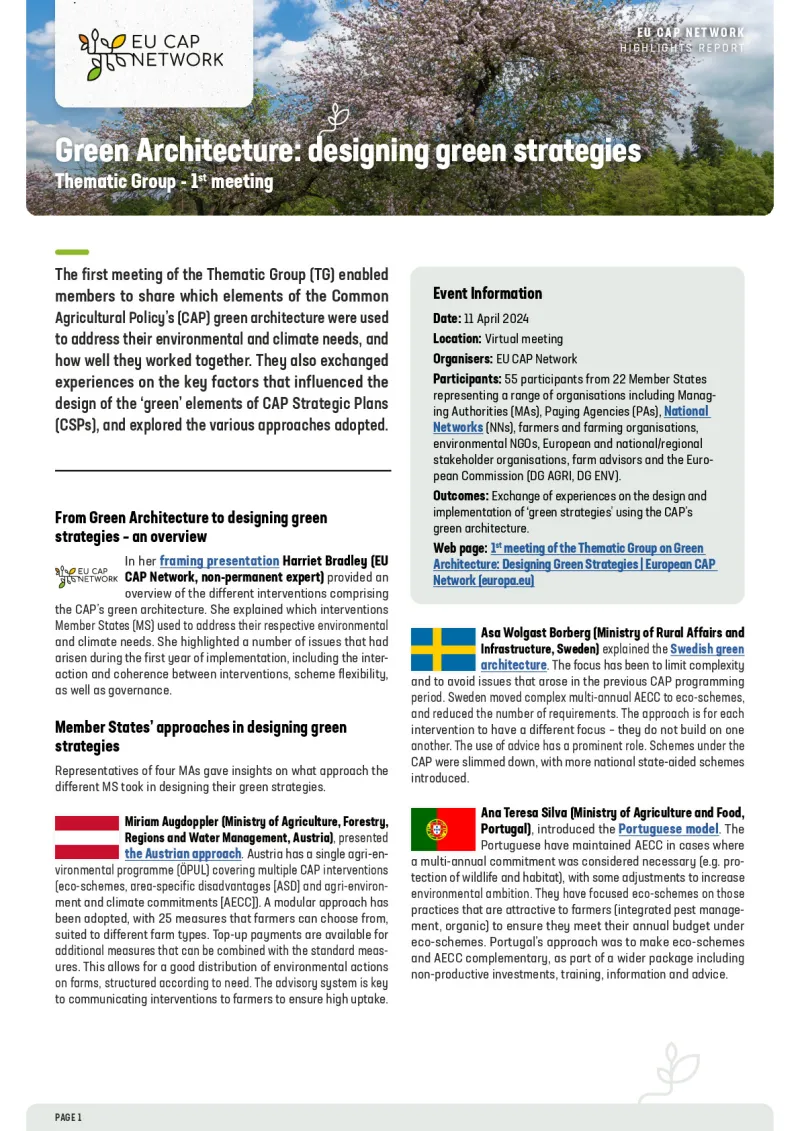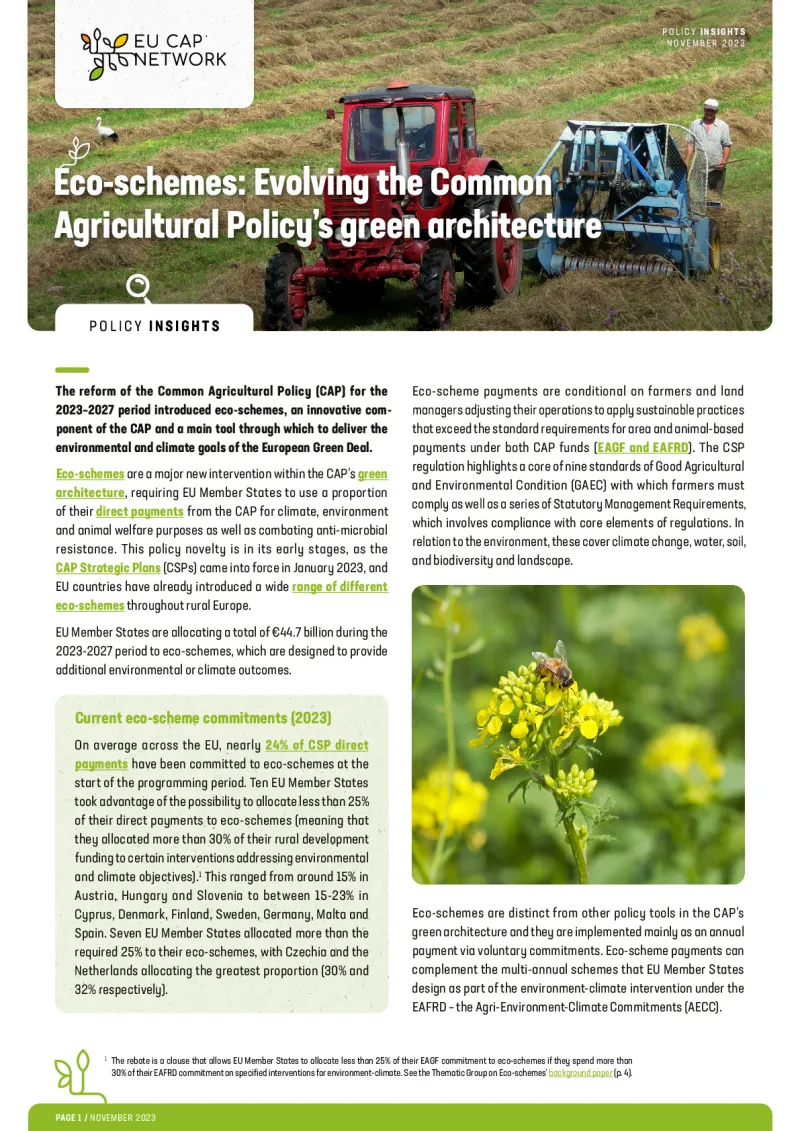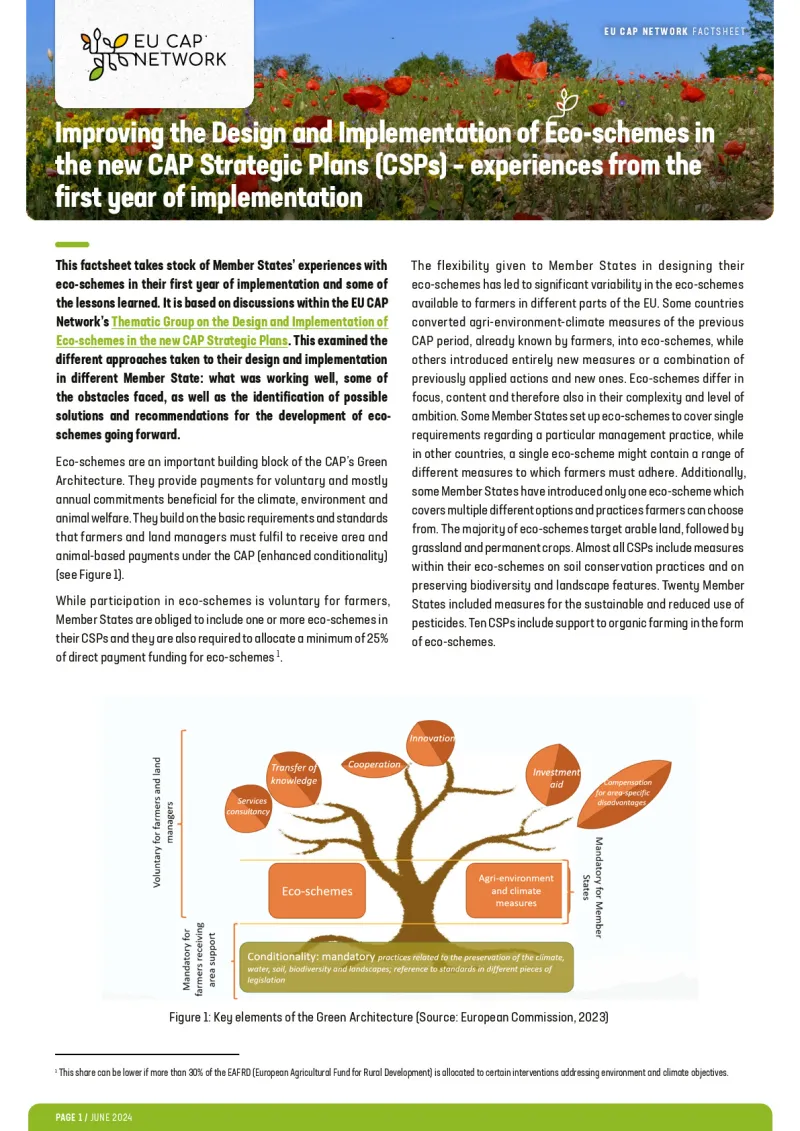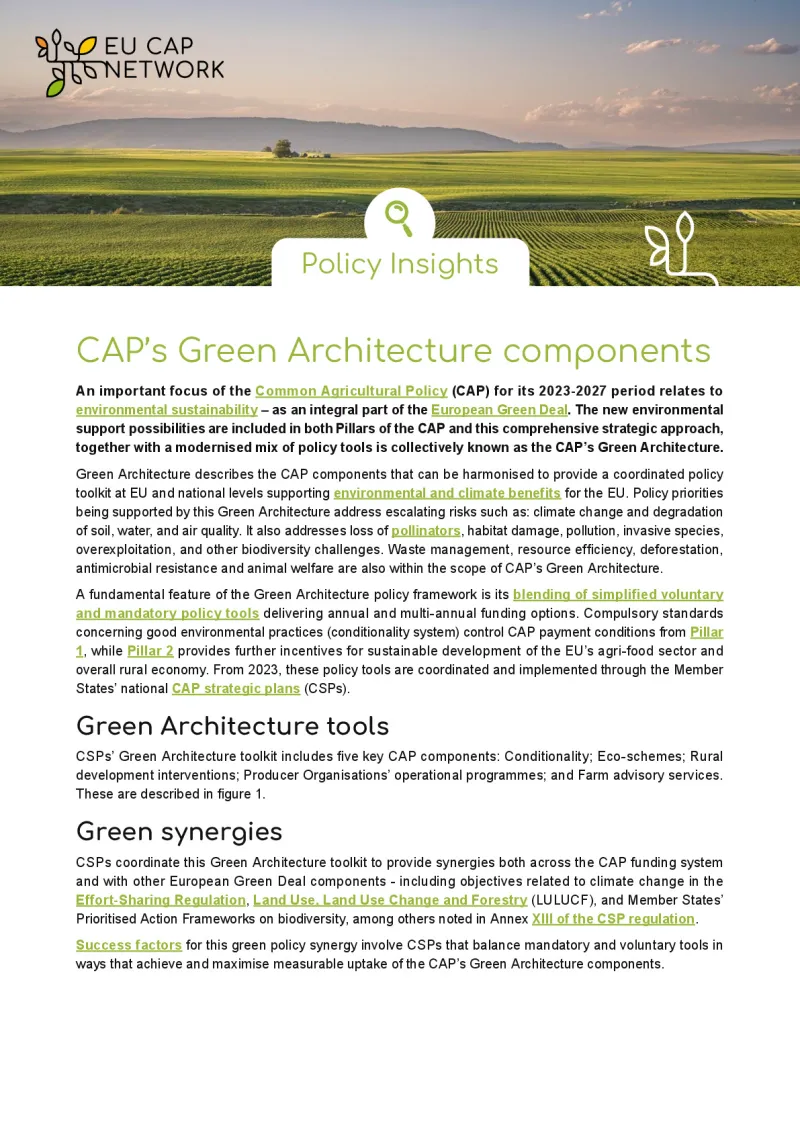Thematic Groups: it’s been a busy spring!
Our recent Thematic Groups have gathered a lot of knowledge about the CAP's green architecture, Monitoring Committees, eco-schemes and support for farmers’ mental health.
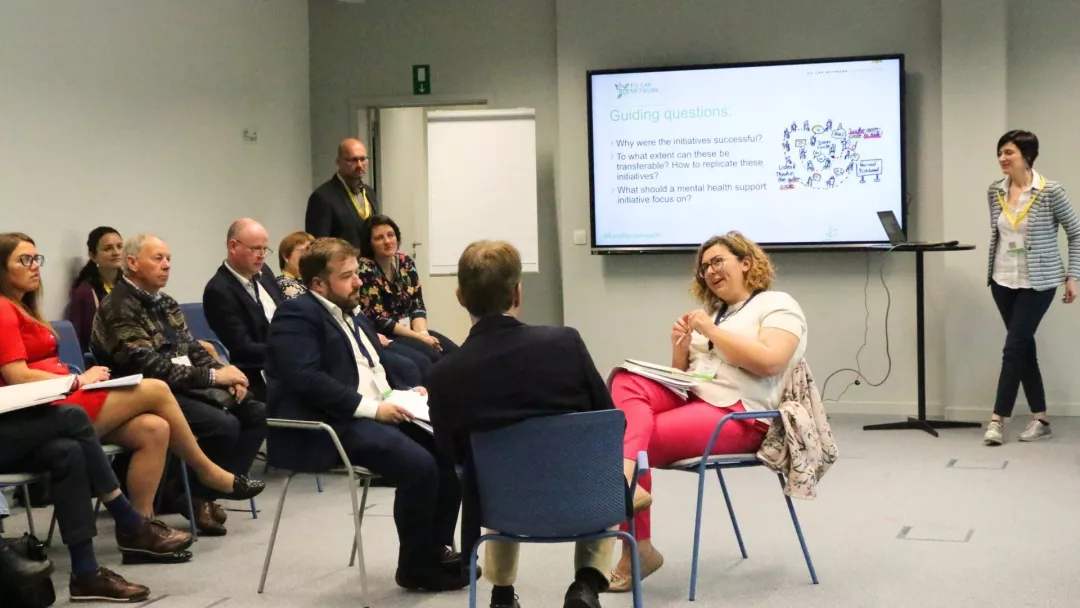
The first half of 2024 was busy for the EU CAP Network with five Thematic Groups (TGs) looking at key aspects of the CAP implementation.
While each TG looked at specific topics, they all highlighted the importance of networking to share knowledge and capitalise on different experiences, the need for tailor-made approaches that respond to specific local needs (and to different types of stakeholders), and the added value of policy coordination at different levels. Together, the outcomes of these TGs advanced the understanding of the key ingredients for a successful implementation of the CAP on the ground.
Green Architecture
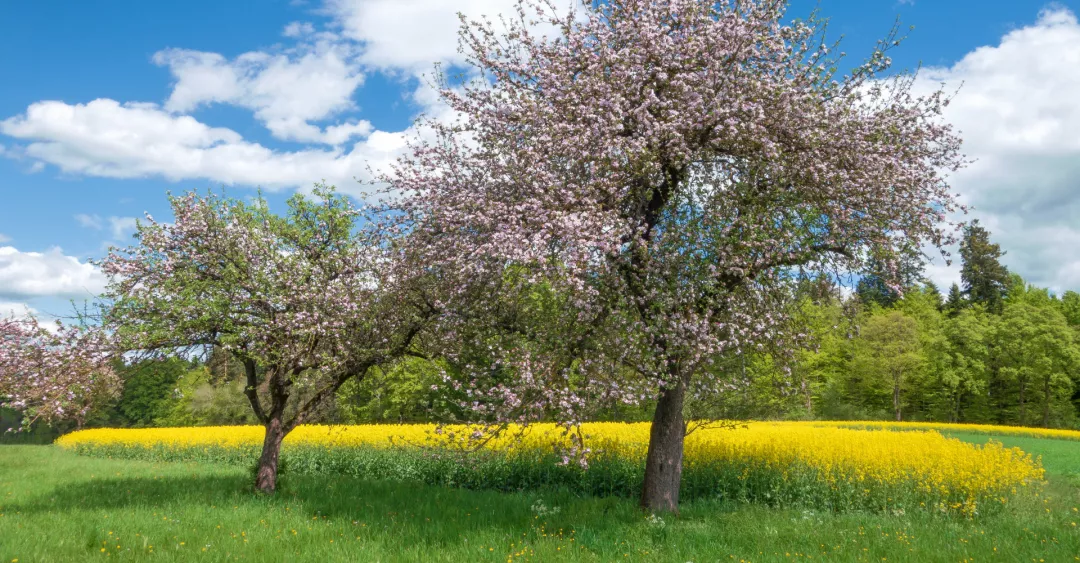
The TG on Green Architecture: Designing Green Strategies looked at the different approaches taken by Member States to develop ‘green strategies’ for their CAP Strategic Plans, using different elements of the CAP’s ‘green architecture’, including eco-schemes, agri-environment-climate schemes, green investments, cooperation and knowledge exchange. A key learning was that a diversity of approaches could be taken to address environmental and climate needs, but there could be more focus on ‘the least used’ interventions like cooperation or advice to encourage greater engagement.
Two TG meetings took place in April and June 2024. The second meeting, in particular, identified key elements required to make the green strategies in the various CAP Strategic Plans (CSPs) coherent and effective, as well as worked towards recommendations. These could include piloting new approaches and a ‘menu approach’ as part of scheme design, offering payments for basic practices with top-ups for more demanding actions.
Based on the TG work, the EU CAP Network will soon publish a factsheet summarising lessons learned and recommendations on the way forward for the design and implementation of CSP green strategies. The factsheet will also include key findings from a piece of analytical work conducted in parallel on the use of green architecture interventions in eight Member States. All these materials will be available on the Thematic Group page.
The TG on Green Architecture built on previous EU CAP Network thematic work, particularly on eco-schemes and Monitoring Committees. These TGs have also contributed to the conversation around CAP implementation, including through some recently published documents. The eco-schemes factsheet discusses lessons learned from the first year of CSP implementation and looks at farmers’ awareness raising, administrative processes, design and targeting, as well as links with other parts of the CAP’s green architecture. A summary and suggested actions briefing produced by the TG on Monitoring Committees summarises actions suggested by TG members for the effective setting up and functioning of Monitoring Committees. It centres on key themes such as implementation approaches, stakeholder engagement, regional Monitoring Committees and the role of National Networks.
Advancing farmers’ well-being
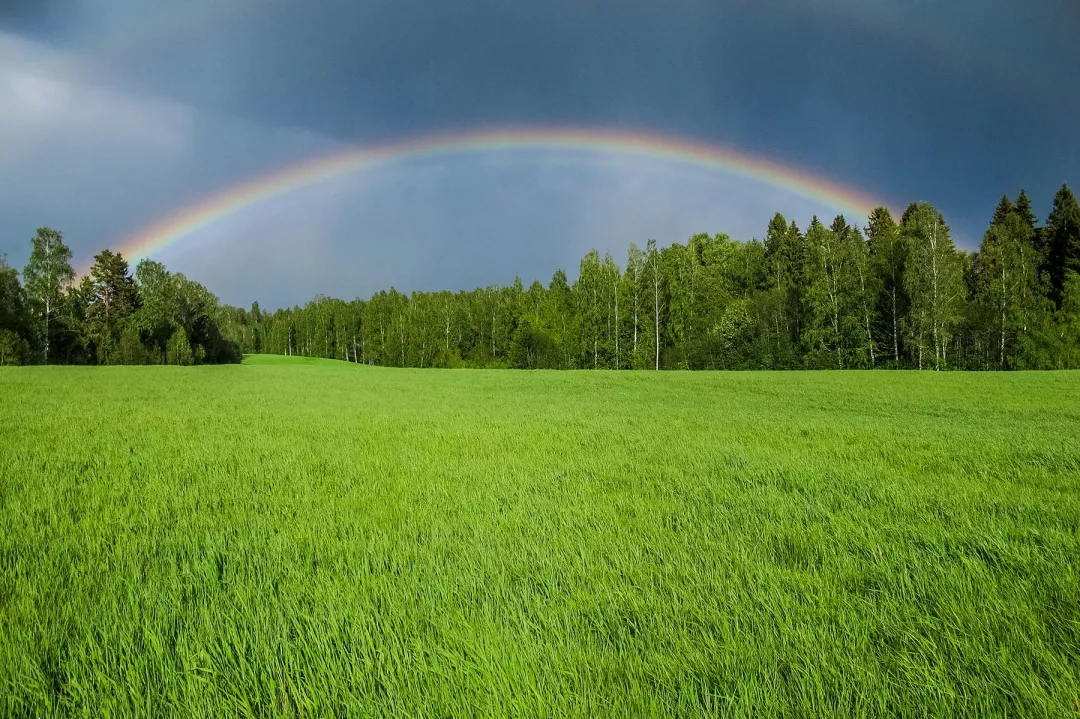
In parallel to the green architecture TG, the EU CAP Network explored the delicate topic of farmers’ well-being with a TG on Supporting the Mental Health of Farmers and Farming Communities. Farmers' mental health can be impacted by several factors, including long working hours, geographical and social isolation, and financial uncertainty. These issues are exacerbated by economic challenges, climate concerns, and increased scrutiny of the farming profession – as well as global challenges, such as wars and global health threats.
The TG examined success factors and elements of replicability of good practices (including notable examples from Finland, France and Ireland). It identified key ingredients to support farmers’ mental health and developed action-oriented recommendations.
The TG discussions allowed participants to raise crucial points, including the need to destigmatise conversations about mental health, the importance of building trust (to encourage farmers and farmer families to use mental health support services), and the importance of preventive measures. The need for a holistic approach to mental health was also highlighted, which means using mobile and online tools for support, national action plans, networking and the inclusion of mental health checks into farmers’ compulsory health insurance. The importance of these conversations was also emphasised as a crucial first step and there was a strong commitment to maintaining the momentum and integrating recommendations into ongoing efforts.
The well-being of the farming workforce is also the focus of two recent Policy Insights articles that look respectively at supporting the health and well-being of Europe’s agricultural workforce – for which improved synergies across EU policies are recommended – and mental health policy for EU farmers. This second article builds on the work of the TG on Supporting the Mental Health of Farmers and Farming Communities. In the text, stakeholders share insights from their own practical experiences and highlight the benefits of coordinated efforts, the development of early-warning services via trained advisors, and tailored integrated mental health policies.
A busy autumn in the forecast
The second part of 2024 will be buzzing with activities. Two new TGs, Gen Z: Leading Generational Renewal in Farming and Enhancing Biodiversity on Farmland for Improved Resilience, will kick off in September. Expressions of interest for both TG are open throughout the summer and all CAP stakeholders are invited to apply.
Members will be selected from the expression of interest as soon as possible after the summer break and the TGs will be active until the end of the year. Whether you are part of the TG or not, you can always contribute with good practices and knowledge through the email addresses on each TG page or stay up to date via the monthly newsletter and our social media channels (@EUCAPNetwork).
